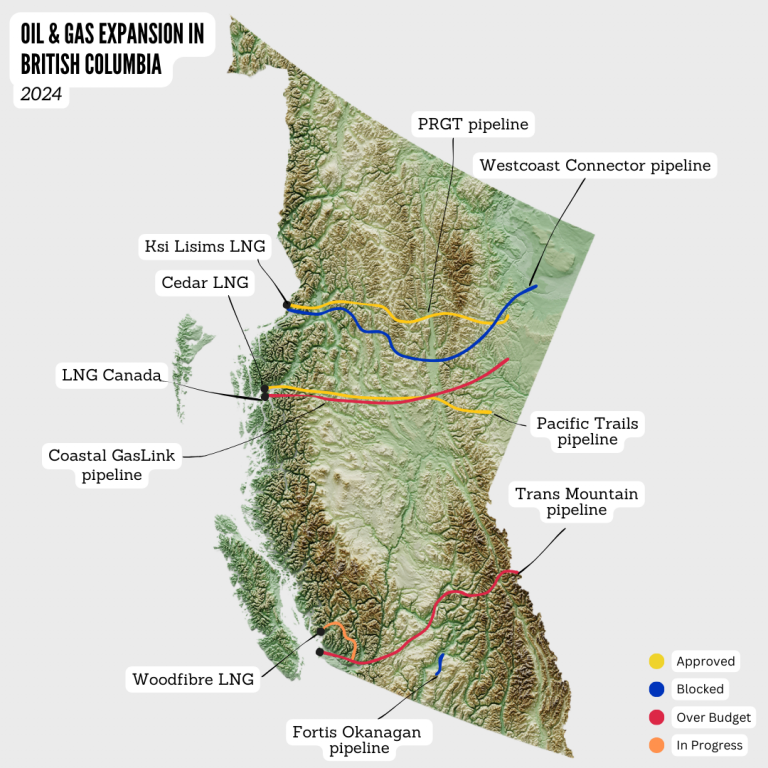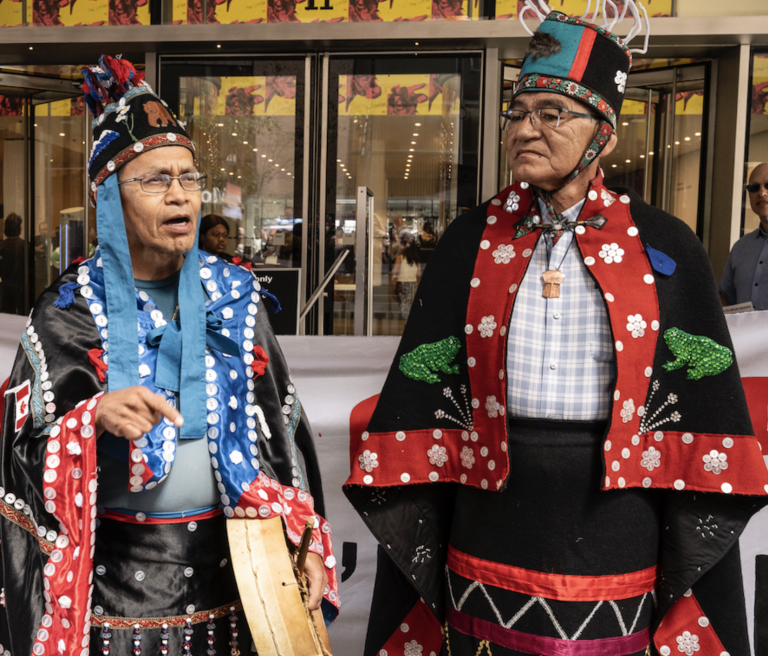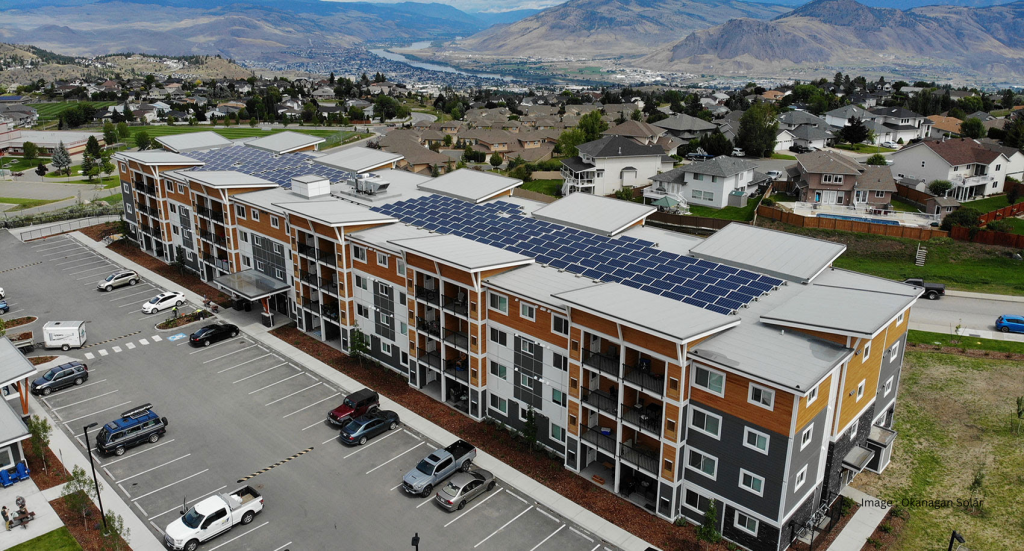2024 could be the year we end oil and gas expansion in B.C.
Major pipelines over budget, cancelled or facing fierce opposition
Just three days before Christmas, British Columbians received a surprise gift: a pipeline rejection. The BC Utilities Commission denied the application by FortisBC to build a $327 million gas pipeline in the fast-growing south Okanagan.
The pipeline would have pumped methane gas to thousands of new homes along the east shore of Okanagan Lake. But the regulator rejected FortisBC’s prediction of ever-growing demand for fossil fuels. Instead, the BCUC said the shift to renewable energy makes a new pipeline unnecessary.
It’s good news for Fortis ratepayers, who don’t have to pay for an unneeded expansion project on their monthly bills. And it leaves local homebuilders with proven options like geothermal energy (a rapidly-growing industry in the Okanagan) or air-source heat pumps powered by electricity (new cold-weather models function down to –30°C).
What prompted this shift in thinking from the BCUC? It may have been the 96 letters of comment organized by local citizen group First Things First Okanagan. Or it may have been the appointment of SFU energy economist Mark Jaccard to lead the commission in September.
Either way, it’s one more sign that B.C. is nearing a tipping point in the battle over fossil fuel expansion. All over the province, oil and gas projects are over budget, cancelled or facing growing opposition.
As negotiators at the global climate talks finally recognized in December, fossil fuels are on their way out. But it’s up to us to give the transition urgency and momentum.
Municipalities getting off gas
Another piece of good news: as of this week, new buildings in the City of Burnaby must use clean electricity for heating, hot water and cooking. The third-largest city in B.C. is moving to tackle its biggest source of emissions, and protect the health of residents who won’t have to breathe fossil fuel exhaust indoors, thanks in large part to the leadership of councillor Alison Gu.
In Burnaby and other B.C. cities, the largest source of air pollution and greenhouse gases is not cars and trucks. It’s homes, stores, warehouses and offices burning fossil gas sold to us as “natural” and “low-carbon” by Fortis, a private empire from Newfoundland with a monopoly on much of the B.C. market.
Burnaby joins Vancouver, Nanaimo, Saanich, View Royal and other communities adopting tough standards on new construction that limit the need for new gas pipelines – exactly the trend the BC Utilities Commission recognized in its Okanagan decision.
The next battleground is Surrey, soon to be the largest city in B.C. as homebuyers flock to transit-friendly developments and new subdivisions. Surrey is a booming market for Fortis, which hooks up 10,000 new homes and buildings to gas pipelines every year in B.C. But city council is considering stronger regulations there as well – watch for updates this month.
LNG terminals face local pushback
Talk to people across B.C. and you’d be surprised how few know that ‘natural’ gas is methane obtained through fracking, a process that permanently poisons vast quantities of fresh water and threatens the health of residents nearby. The same fossil fuel is called LNG once it’s cooled to a liquid and loaded on a ship. There again, local leaders are raising concerns about LNG schemes up and down the coast.
The District of Squamish dragged its heels as long as possible in the face of FortisBC’s new pipeline to the Woodfibre LNG terminal, citing impacts on housing affordability, traffic, public health and safety. (Woodfibre is also facing two lawsuits – you can support the plaintiffs here.)
Five municipalities oppose the company’s Tilbury LNG expansion, which is waiting for a decision from the province. Even the City of Terrace admitted recently that the boom created by the LNG Canada project has been mostly negative for residents.
The warning from Terrace came during public consultation on the latest LNG megaproject under review: the Ksi Lisims terminal north of Prince Rupert. Proposed by a consortium of fracking and LNG companies from Alberta and Texas, Ksi Lisims is fronted by the Nisga’a government. But their next door neighbours, the Lax Kw’alaams, are strongly opposed to the project. And the Gitanyow, who rely on salmon from the Nass estuary, are also raising the alarm.

Major pipelines in limbo
The Ksi Lisims LNG project would only work with a huge new pipeline to bring gas from fracking operations on the opposite side of the province. There are two routes on the table: Enbridge’s Westcoast Connector pipeline and TC Energy’s Prince Rupert Gas Transmission line, PRGT. Enbridge abandoned its request for a certificate extension last year, after 5,612 people (and a pack of dancing zombies) demanded that B.C.’s environment minister let the pipeline die.
That leaves PRGT, owned by the same company that just finished building the Coastal GasLink pipeline under paramilitary guard. PRGT was approved by the Christy Clark government way back in 2014, which means its certificate expires this year. The company has to start building before November to keep the project alive. We’ll be keeping a close eye on the route in Northern B.C.
Coastal GasLink, trumpeted by oil and gas boosters as a success story, might actually lose money according to TC Energy’s chief financial officer. The pipeline went billions of dollars over budget despite the RCMP doing all they could to push the project through. Now TC is in a nasty $1.2 billion legal fight with one of its contractors, owned by the controversial Italian company Bonatti.
Coastal GasLink’s troubles don’t end there. The project left a swathe of destruction through sensitive fish habitat in the northern Rockies and Coast Mountains, including Wet’suwet’en territory. Two Wet’suwet’en chiefs visited Kohlberg Kravis Roberts & Co (KKR) in New York last fall, the private equity firm that actually owns most of Coastal GasLink. In a recently-published letter, the chiefs warned the pipeline owners they must repair the damage and compensate the Wet’suwet’en people.
KKR and TC Energy have yet to respond. But lawsuits by any of the affected Wet’suwet’en house groups or clans could push the final price tag for Coastal GasLink into the stratosphere.

Wet’suwet’en chiefs Woos (left) and Na’moks in New York
Trans Mountain debacle continues
Speaking of over-budget pipelines, the Trans Mountain Expansion is now “perhaps the largest boondoggle in Canadian history”. I remember raising the alarm about TMX back in 2013, when I first volunteered with Dogwood to knock on doors in North Burnaby. It’s painful to see the project this far along despite more than a decade of common-sense grassroots opposition.
But once again, it’s not a done deal. Trans Mountain is now warning of a “catastrophic” two-year delay on the pipeline, with billions more in losses for Canadian taxpayers. Why? Because they tried to bore a tunnel through hard rock near Hope that defeated drilling equipment. And the Canadian Energy Regulator has so far rejected the company’s request to use thinner, substandard pipe in the tunnel, which is just metres from the country’s largest salmon runs.
Meanwhile near Kamloops, the company went back on its promise to protect the grasslands near Jacko Lake – an ancient sacred site called Pipsell by the Secwepemc people. The Secwepemc-led Unceded Law Response Group has filed a request for a court injunction to halt open-trench construction.
Even if Trans Mountain overcomes all these self-inflicted obstacles and finishes construction in 2024, it will stand as a dire warning to the rest of the oil industry. Back in 2018 the original owner, Kinder Morgan, saw trouble coming and sold the project to the federal government for $4.5 billion. Construction costs have since ballooned to $31 billion and counting.
The whole point of these projects is to make money. Unless future governments are foolish enough to shoulder the costs, the business case for new pipelines is crumbling.
Our strategy
Looking ahead at 2024, an intriguing possibility emerges: could the tipping point for oil and gas expansion be closer than we think? After all these years of hard work, could Indigenous nations, municipal leaders and climate justice organizers finally put our energy toward building the communities we need – rather than having to fight one bad project after another?
It’s a tantalizing prospect. At the same time we know that an animal fights hardest when it’s cornered – and the oil and gas industry is a dangerous beast with everything to lose. Companies like Fortis, Shell and Tourmaline have already stepped up their lobbying, and are funding slick disinformation campaigns using their customers’ money.
But those are signs of desperation, designed to delay the transition they all know is coming. We can debunk their greenwashing and arm British Columbians with the facts. And we can bring the tipping point closer, by organizing to stop further fossil fuel expansion.
Let’s celebrate our movement’s victories, like the wins over Enbridge and Fortis in 2023. And at the same time watch TC Energy like a hawk, monitoring any signs of a sneaky attempt to start construction on the PRGT pipeline.
Let’s support Indigenous allies on the front lines, like the Wet’suwet’en land defenders on trial in Smithers next week. There again there are victories to celebrate, like Sabina Dennis who was found not guilty of criminal contempt in November. We’ll let you know as new legal strategies emerge.
Let’s keep pushing the B.C. government to show some leadership and stop making municipalities and First Nations do the heavy lifting. Not just elected decision makers but the public servants at the Environmental Assessment Office, BC Energy Regulator and BC Hydro.
Let’s take the fight directly to the corporations that are polluting our homes and bodies, water and land, and democracy itself. Oil and gas money has distorted our public debate for too long. Those responsible deserve to be exposed, and their greedy schemes foiled.
And of course, let’s take care of our friends and neighbours as the climate crisis threatens homes, livelihoods and entire towns across B.C. Through worsening floods, droughts and fires, it’s mutual aid that has often reached people faster than government agencies. We need both, and must continue to direct resources to the people who will need help most.
Everyone deserves safety, a dignified place to live, meaningful work and the chance to be healthy. Everyone deserves to have hope for the future. Corporate greed has taken much of that away from us. But we can win it back. If people in B.C. can defeat the most powerful industry in the history of the planet (and we’ve shown we can) then we can build a place worth leaving to our kids and grandkids. Happy New Year.


Thanks for the good news. It’s why we’ll continue to fund Dogwood, to the best of our ability. And Happy New Year to all the brave activists on the ground.
THanks for the insightful, thorough analysis of the future decline and fall of the fossil fuel age. A cause for hope…
Excellent article. Thank you.
Impressive and encouraging reporting!
Yes to all of the above and this is why I support Dogwood monthly!
So there is hope yet…. Thank you Dogwood!